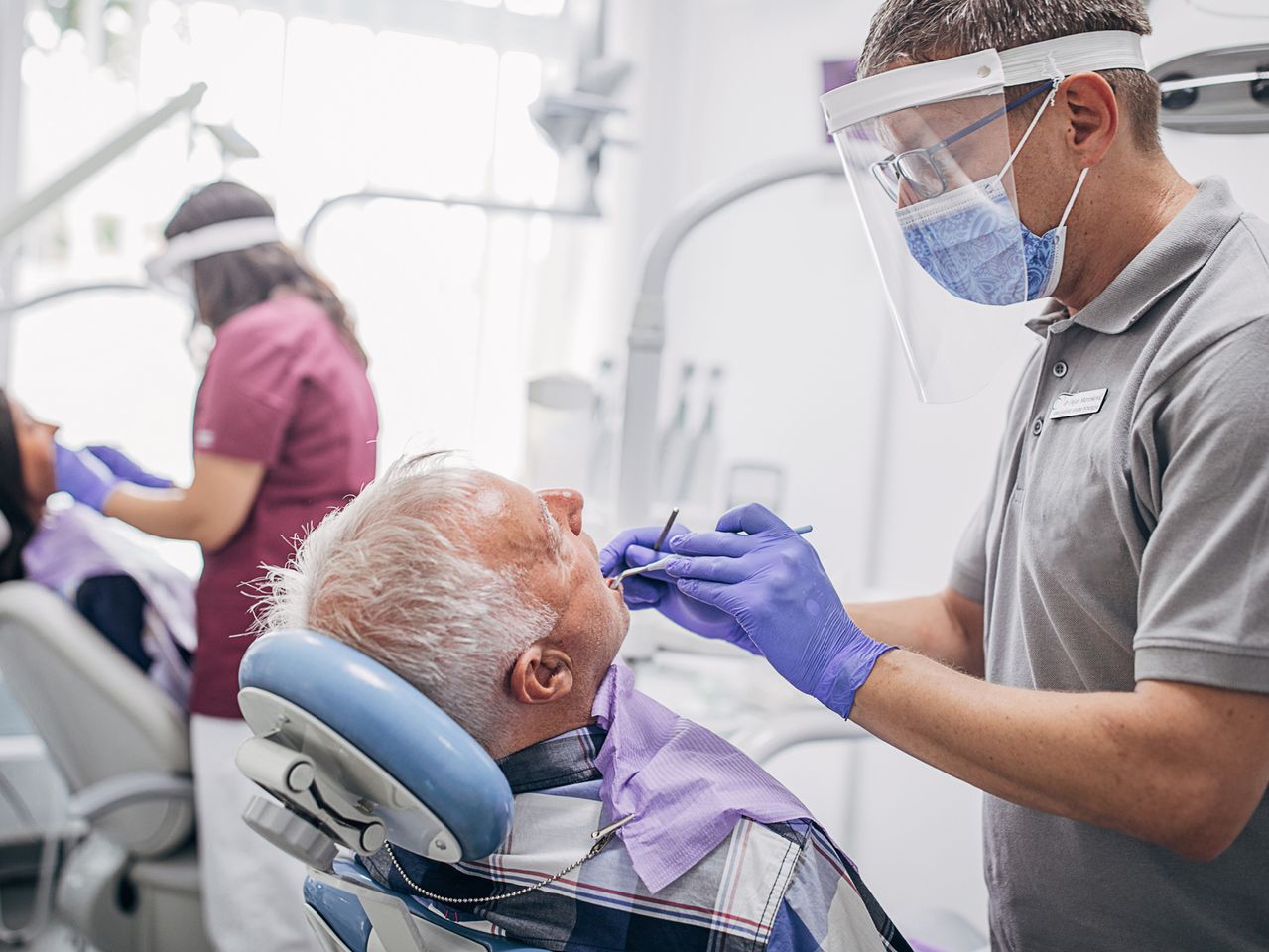Poor nutrition, pain, and a diminished sense of self-worth are some side effects of missing teeth. Dentures are an option for addressing tooth loss, as they can restore your smile and chewing function and support your jaw and the structural integrity of your face.
Original Medicare does not cover dentures and other dental prosthetics. However, Medicare Advantage and individual dental insurance policies may assist in paying or reducing your out-of-pocket expenditures.
When Do Medicare And Medicaid Cover Dentures?

Medicare may help cover the cost of tooth extraction if you need to have one done due to a medical condition. Dentures of any kind, however, are not covered by traditional Medicare (Parts A and B).
Dentures and other dental work may be covered by your Medicare Advantage plan, depending on the specifics of your policy. Medicare Advantage enrollees interested in knowing whether or not dentures are covered by their plan should contact their insurance company directly. Inquire as to if there are any prerequisites for receiving this protection.
When It Comes To Medicare, Which Options Should You Consider If You Need Dentures?

It's worth evaluating your existing health insurance if you're expecting to need dentures this year and considering whether or not a Medicare Advantage plan would be a better fit. Separate dental insurance plans could mitigate denture costs.
Insurance Plan A For The Elderly (Medicare)
Hospitalization expenses are covered by Medicare Part A. Medicare Part A may pay for a hospital-based tooth extraction if you need one due to a medical emergency. The cost of necessary dental prostheses, such as dentures or implants that may have to be replaced due to the procedure will not be covered.
Part B Of Medicare
Part B of Medicare pays for preventive and routine medical treatment received outside a hospital. Dental examinations, cleanings, X-rays, and dental equipment like dentures are not covered by Medicare Part B.
Subpart C Of Medicare (Medicare Advantage)
Private insurance firms offer a form of Medicare coverage known as Medicare Advantage (Part C). These plans must cover the same services as traditional Medicare, and many even go above and beyond. Dentures are expensive, but dental benefits may help defray the expense, if not cover it entirely.
Part D Of Medicare
Subsidized by drug companies, Medicare Part D pays for medicare-approved medications. Premiums for Medicare Part D must be paid on top of the standard Medicare premium. While dental care is not covered by Part D, some pain medication you may need following in-hospital oral surgery may be.
Medigap
Medicare supplement insurance, or Medigap, is available to help pay for some out-of-pocket expenses associated with Original Medicare. Even though there is a monthly charge for Medigap insurance, they might make having Medicare more affordable.
Medigap does not increase the benefits provided by Original Medicare. The out-of-pocket cost for dentures is the same whether you have original Medicare or a Medigap policy.
How Much Do Dentures Typically Cost If You Have Medicare?
Original Medicare does not cover dentures in any way. You'll have to shell out cash for the full price to get new false teeth. Medicare Advantage plans that include dental coverage may help defray the expense of dentures for their members. Examine Medicare Advantage plans that provide dental care to check if dentures are included in the coverage. Medicare Advantage plan details can be verified by contacting the insurance company directly.
To What Extent Does Medicare Pay For Dental Care?
Typically, dental care is not covered by Medicare. Only a few outliers stand out:
Hospital-administered oral examinations before major surgeries such as kidney and heart valve replacements; tooth extractions and other dental care when necessary for the treatment of a problem other than tooth decay; dental care required as a side effect of cancer treatment. Damage to the jaw necessitating surgical repair
Where Else May I Go For Financial Aid For Dentures?
Schemes providing discounts on dental care. Cleanings, crowns, exams, and fillings can be discounted by 30%–40%, and dentures can be discounted by 15%–50%, depending on the program. Some plans require an upfront annual fee in exchange for these discounts. You may need to visit a certain dental office to participate in these plans. Medigap provides supplemental insurance. While most Medigap policies do not provide dental coverage, some insurers will if you pay an additional cost.
For example, certain forms of dental coverage include additional hearing and vision benefits and require a dental discount program membership. Medicaid. In states where residents meet the program's income and asset standards, residents can have access to dental care under Medicaid. Above half of the states include complete or partial denture coverage under Medicaid.




